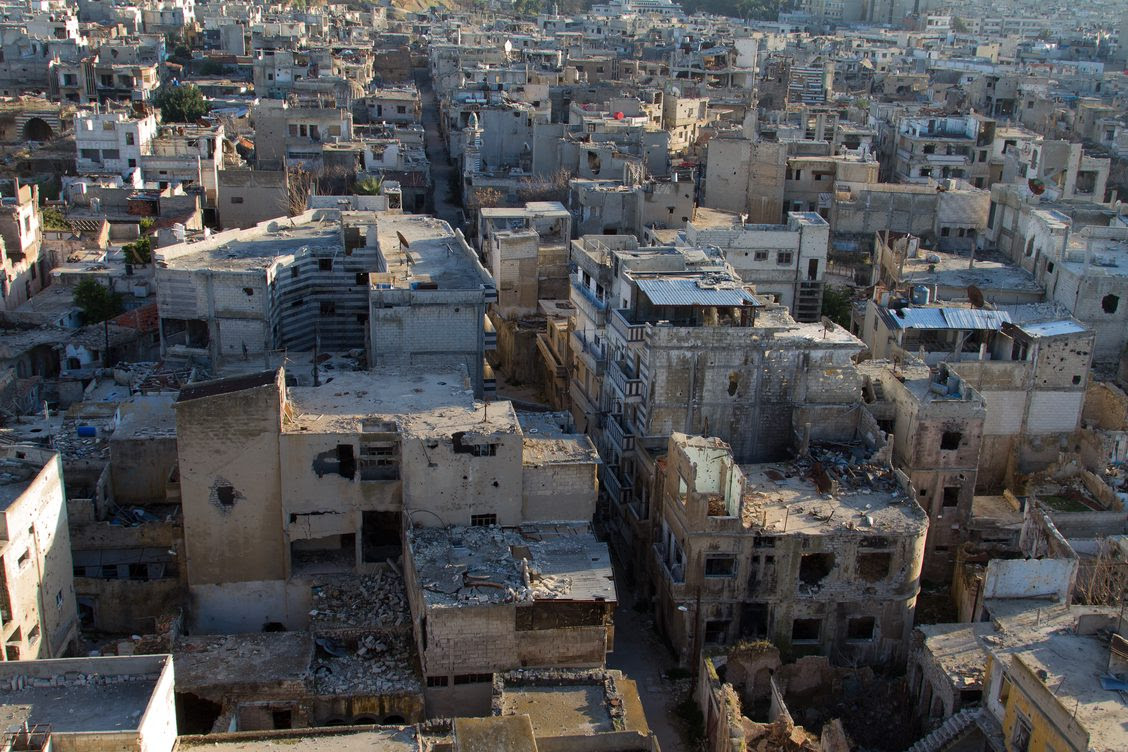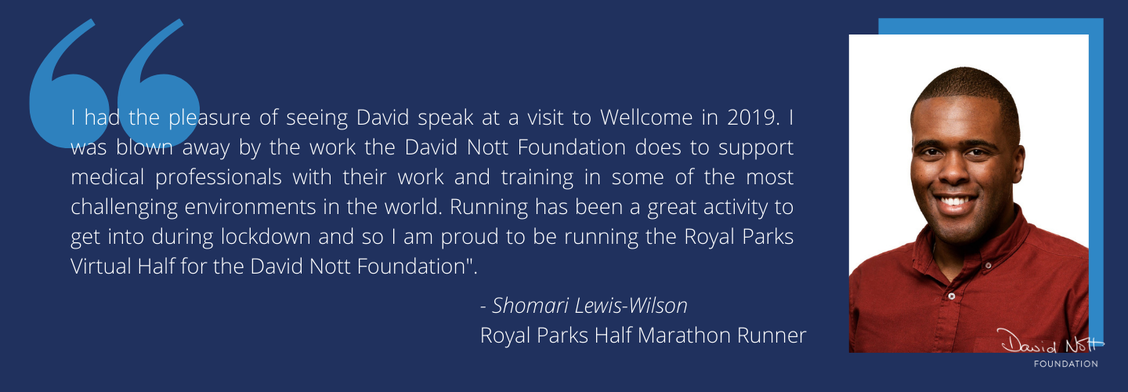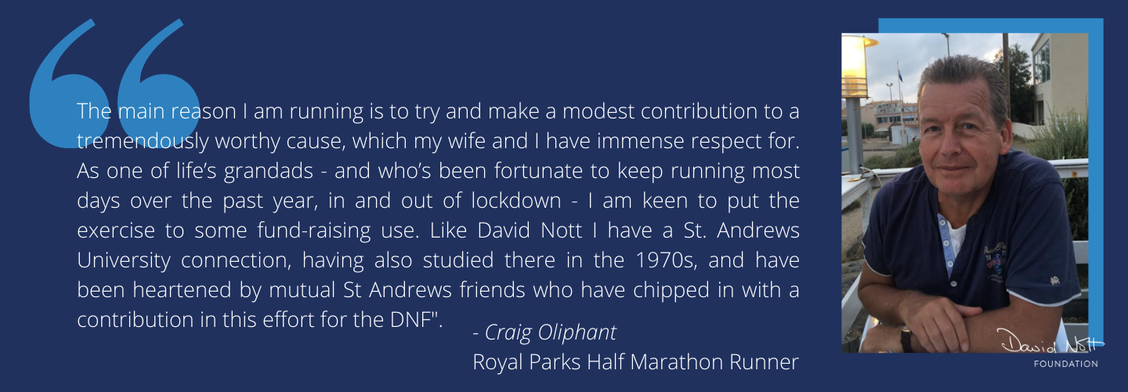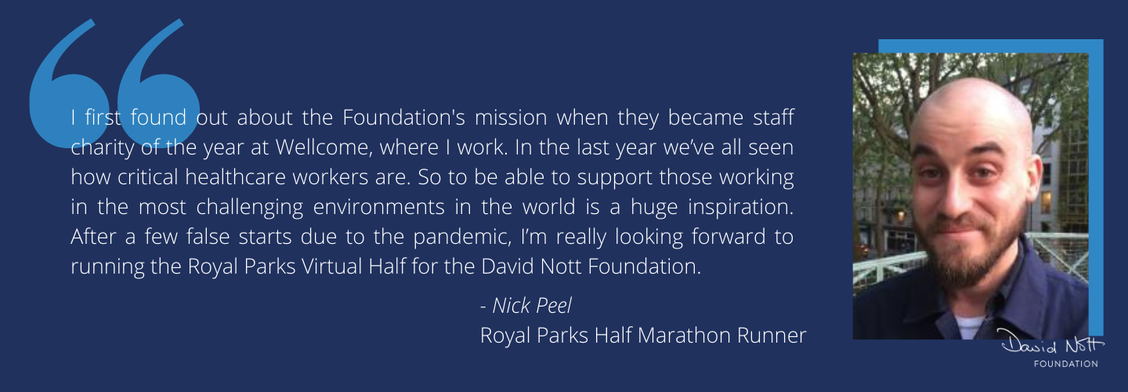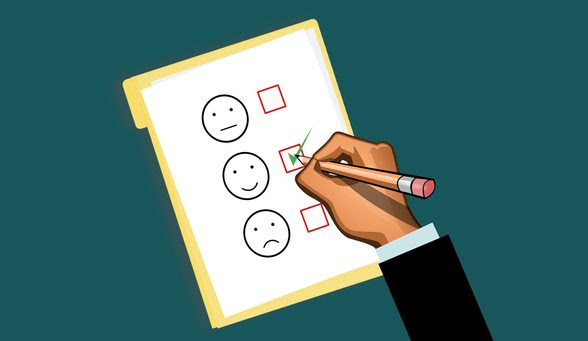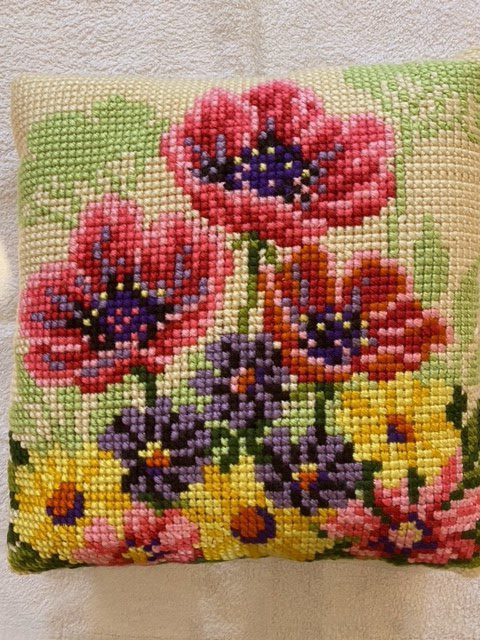Operating and Teaching in Yemen: an Interview with David Nott
In April, David travelled to Yemen with Ammar Darwish, Mounir Hakimi and Asan Raffee to deliver both teaching and hands-on surgery in the World's worst humanitarian crisis. Below is a short interview that we conducted with him on his return.
How did this trip come together?
It came about with a telephone call from Syria Relief. Mounir Hakimi (of Syria Relief) had been in contact with several of the doctors who had been working in Marib. They were operating on a large amount of cases and they wanted help. Some of the surgeons who were there had difficult wounds or injuries presenting, and they wanted advice and teaching on how to cope with those injuries. That was how we heard about it.

The Syria Relief - DNF Team break their fast in Marib.
What did you see of the city of Marib?
It was pitch black at night when we arrived. We landed in Seiyun and it was a 6 or 7 hour drive to Marib. We arrived very early in the morning and went to a hotel local to the hospital. A few hours later, in the morning, we went to the hospital and were very much welcomed by the medical team working there.
What was the hospital like?
We had a very nice tour around. The Medical Director was extremely enthusiastic in showing us exactly what they had been able to continue to do. They had a very good blood transfusion bank, they had very good blood chemical laboratories. They had an intensive care unit, they had well-stocked theatres and they had a good array of back-up support. There were a lot of nurses on the wards.

At the time, Marib was becoming the epicentre of the civil war. Could you see that that hospital and its staff had been affected by escalating conflict within and around the City?
Yes. It was the epicentre. And it still is. The fighting is intense. Probably about 15km north of Marib. At the moment, Marib has about two million refugees and it is very densely populated. The fighting is continuing and obviously the hospital that we were in was the frontline hospital to accept all those casualties that were wounded. Both civilian and non-civilian.
We heard jets going over the top and we also heard rockets coming into Marib. You were aware that you were in a very hot war zone.
Who did you meet at the hospital?
Some were senior doctors. Some had just come in the last couple of months from Egypt to help out. There were quite junior doctors. There were those that required quite a lot of teaching and understanding of how to manage injuries. The hospital had stopped almost all of its elective surgeries. They were focusing purely on the war-wounded patients. Unfortunately those patients that had cancer problems weren’t really dealt with at this time.
Which case stands out the most in your memory?
I think the case that stood out most was after the teaching we gave the night before on gunshot wounds to the chest and abdomen. The surgeons had never done a thoracotomy before for a gunshot wound to the chest. The following night we were called back to the hospital with a surgeon who had watched our lecture and we found there was a patient who needed a thoracotomy. Because we were there, we were able to show him exactly how to do it and exactly how to extend this incision onto the abdomen and do a thoracoabdominal procedure. The patient did extremely well and thanked us a couple of days later.
We discussed a lot of reconstructive work. Most of the flaps that we discuss on our HEST® course, we did in Marib. There was a lot of surgery done with a view to the surgeons being able to do that kind of surgery when we left.

Going forward, what do you think the Foundation's work in Yemen is going to look like?
I think that we will be going back to Marib, and I think we will continue to go back and support them both with teaching the DNF HEST® course and perhaps this time taking our models with us as well so that we can run a course during the day or the evening and then operate as well. I think the future of the DNF is operating as well as hands-on teaching as well as the classroom for some courses. The future lies both within the operating theatre and the classroom.
I think we had developed a significant rapport with the doctors such that I heard recently that they desperately want us to go back again to show them more and more. I think that is the perfect opportunity for the DNF to show what it is worth really.
This mission epitomised what the DNF is all about. The DNF goes out to the field, it saves lots of lives as well as teaching the doctors so that they can continue to save lives. The DNF leaves a legacy.
You can read Ammar Darwish's story of the mission here.
David Nott and Ammar Darwish Return from Yemen Mission
Surgery on the Frontlines of the Yemen Civil War
Ammar Darwish's experience of operating and teaching in the world's worst humanitarian crisis.
CONTAINS GRAPHIC IMAGES OF SURGERY
"The Yemeni medical staff in Marib sent a call for assistance as they have been extremely overwhelmed with injured patients from the war"
David and Ammar were called up by Syria Relief to assist the medical staff in the city of Marib, who were facing an unprecedented number of patients injured in the intensifying conflict of which the city had become an epicentre. The team left London excited to get back to their roots, operating in areas of conflict and austere environments.The team left London ready to begin the long journey to Yemen, where they would meet with Syria Relief - a charity that provides support to Syrians needing medical intervention, food, education and other necessities. The team arrived at Seiyun airport in Yemen, and travelled through the night to reach the hospital in Marib that was to be their home for the next two weeks.

Marib is just 10 or 15 kilometres from the front-line of fighting, a grim reality that was ever-present as the team arrived and changed immediately into their theatre clothes.
After meeting the local medical team David, Ammar, Mounir and Dr Asan Rafee had a quick tour and then immediately started working. For the patients at this trauma centre, there was no time to lose.
![[object Object]](https://media.shorthand.com/media/organisations/Sn3h4o86N0/HrtyxtQmDd/whatsapp-image-2021-05-21-at-17-11-13-1600x1200.jpeg)
"This is one of the first operations that we dealt with. A gunshot wound to the abdomen in a young man who was left in a state of shock. He bled a lot and we had to do a trauma laparotomy and damage control surgery. We operated on him immediately.
David is just behind me in the background. He is getting ready to go to another theatre to deal with another case."



"Again, another abdominal injury to a patient. We are doing an emergency trauma laparotomy and treating the patient. David, Myself and one of the local surgeons".
Although the local surgeons are very experienced, they have not dealt with many of these cases before. David and Ammar spent many hours training the local surgeons, imparting their years of knowledge gained through war surgery and taking them through complex operations.
They opened the chest to stop the bleeding, performed damage control surgery and took the patient into intensive care. All the while, David and Ammar were teaching their local counterpart how to perform this procedure, and to deal with these injuries.
After 7 days, the patient was discharged. His life had been saved.

"This is the team after a long day of operating, dealing with different kinds of injuries. We sat down, I think it was almost 8 O'clock in the evening to break our fast after a long day of operating - I think 12 or 13 hours of operating".

"When everything had calmed down, especially at night, we used to give teachings. David gave lectures on different kinds of injuries and how to manage those injuries. David did the main teaching, and Mounir and I helped to translate".
The team did around 45 operations in Yemen. This ranged from life-saving trauma surgeries to complex reconstructive surgeries.
They returned home to the UK ready to deploy again as soon as possible, to wherever they are needed.

The mission itself was organised and conducted by Syria Relief. Head to their website (https://syriarelief.org.uk/about-us/) to learn more about them.
April 2021 Newsletter: 10 Years of Conflict in Syria

10 Years of Conflict in Syria
Welcome to the David Nott Foundation’s April update. To those observing, we hope that you had a restful Easter and were able to come together with loved ones to celebrate. Today, we at the Foundation have been profoundly saddened by the new that His Royal Highness The Prince Philip has passed away. We wish to express our deepest condolences to Her Majesty The Queen, and the Royal Family. It has now been ten years since the civil war erupted in Syria. The price paid over the last terrible decade by Syrian civilians is incalculable, and millions still reside in vulnerable, crowded camps. Children have lost schools, friends and family members. So many thousands have lost their homes, businesses and loved ones. Hospitals, deliberately targeted by the Syrian regime now struggle to cope with the COVID-19 pandemic. As a show of solidarity with the Syrian people, the David Nott Foundation dedicated our social media accounts to small NGOs, individuals, civilians, humanitarians and journalists who have lived experience of the civil war. We hoped to provide a platform through which to amplify these voices. We encourage you to look back through our Tweets and Re-Tweets (@NottFoundation) to read first-hand accounts of the atrocities and reflect on the profound loss that we all feel after ten years of conflict. The David Nott Foundation has taken our HEST® course to Syrian surgeons before, and plans to again soon. You can view an interactive map of where we have taken our training course by visiting the ‘Overseas Course’ section of our website. Good luck to our RPHM RunnersWhile we’re on the subject of challenge running events, the Foundation would like to wish good luck to our Royal Parks Virtual Half Marathon runners for the 11th of April. We asked some of those competing to raise money for the DNF what inspired them to do so:
|
||||||||||||||||||||||||
March 2021 Newsletter
What is it really like to be a doctor in a war zone? |
 |
|
Welcome to the David Nott Foundation’s February update. The pandemic has given us the time to reflect on the amazing doctors that we have trained on past HEST® courses. Each one of them has a story to tell. Some go to work every day while bullets tear through the walls of their operating theatres; some fight to save lives while armed groups fight each other in the streets. In this booklet, we highlight eight such doctors and give them the platform they deserve. READ: ‘War Doctor Heroes’ photobooklet on the DNF website with foreword from Elly Nott. |
|
||||||||||||||||||||||||||||||
|
Last year, the staff of Wellcome chose the David Nott Foundation as their charity of the year for 2020/21. Since then, they have consistently given outstanding effort to the cause, from completing challenge events to auctioning lunches with Director Sir Jeremy Farrar. To each and every member of Wellcome’s staff: thank you. Your effort will reverberate around the world as we train more war doctors, and they save more lives. For small charities like the David Nott Foundation, every donation can have a disproportionately large impact. Every sponsored run, bake sale or event goes a long way to delivering vital surgical training in locations that need it. |
||||||||||||||||||||||||||||||
David Nott Wins Human Rights Award
On the 2nd of February, David Nott was awarded the Hans Albrecht Foundation’s Human Rights Award for 2021. The award was presented by Lord Daniel Finkelstein.
The Hans Albrecht Foundation’s mission is to advance human rights in the UK, particularly with regards to children, equalities, those with disabilities and refugees. The Award honours individuals or organisations that have made outstanding contributions to the field of human rights. Read more about the Hans Albrecht Foundation on their website.
|
|||||||||||||||||||||||||||||
|
As a result of our membership, you will be able to receive full tax exemption status. To donate from the USA, please go to the new dedicated section of our website. |
|||||||||||||||||||||||||||||
|
|||||||||||||||||||||||||||||
|
Earlier this month, FDNF Manchester hosted a fantastic conference entitled: ‘MDT On the Front Line’. This was a stimulating day of speeches and workshops led by some of the field’s most distinguished practitioners. Alongside David Nott was our own Jon Barden, leading a workshop on humanitarian operations delivery, and DNF Faculty colleague Ammar Darwish who also led a workshop. |
|||||||||||||||||||||||||||||
Make Someone’s Day This EasterEaster is a perfect time to reach out to loved ones and friends. In this time of social distancing, a handwritten card feels like an authentic connection in a way that an email cannot. Make someone's day with this beautiful card by Peter Suart, or choose from our extensive range on our website - proceeds from which will benefit the David Nott Foundation. |
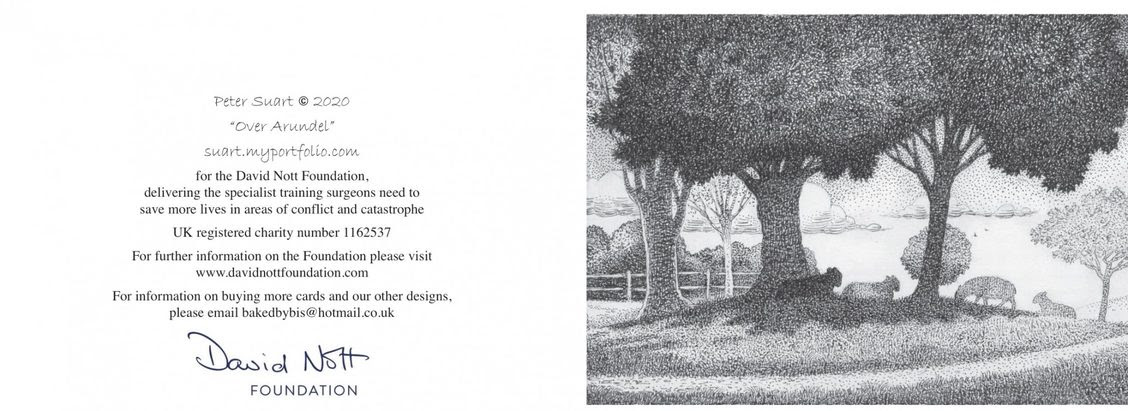 |
Wellcome Staff Charity of the Year
Our partnership with Wellcome will have a profound and lasting impact on both war doctors and their patients in conflict zones. Today we say thank you and recognise the huge and very real impact that Wellcome’s generosity will have on our work.
Last year, the staff of Wellcome chose the David Nott Foundation as their charity of the year for 2020/21. Since then, they have consistently given outstanding effort to the cause, from completing challenge events to auctioning lunches with Director Sir Jeremy Farrar. Particular congratulations go to Mala Gaonkar for winning the latter - we can only imagine how fascinating that conversation will be! Mala is a philanthropist and leader in the field of public health, and we are proud to be associated with her as a result of Wellcome's auction.
To each and every member of Wellcome’s staff: thank you. Your effort will reverberate around the world as we train more war doctors, and they save more lives.
For small charities like the David Nott Foundation, every donation can have a disproportionately large impact. Every sponsored run, bake sale or ticket sale goes a long way to delivering vital surgical training in locations that need it.
Elly Nott Leads DNF's Celebration of International Women's Day 2021
To mark International Women's Day 2021, David Nott Foundation Co-Founder Elly Nott writes:
This International Women’s Day I will be thinking about Mariam, Aiya, Aesha and Farida.
Mariam lives in Palestine, Aiya and Aesha in Libya and Farida in Syria but I have had the honour to meet them all at courses run by the David Nott Foundation (DNF), the charity I Co-Founded in 2015.
The DNF has a simple mission; to equip doctors with the skills they need to save more lives in areas affected by conflict and natural disaster. In these places, resources are often scarce, and medical education and training disrupted. We believe everyone deserves access to high-quality care, from highly-trained professionals, no matter where they live. Our impact resonates long after our team has left because the knowledge and techniques we teach are shared and go on to improve the lives of whole communities for years to come.
It remains a fact that whilst women form 70% of workers in the health and social sector[1] worldwide, they are underrepresented in surgery, particularly at the most senior levels. Worldwide statistics are difficult to obtain but in the UK women made up 13.2% of consultant surgeons in England in 2020, according the to the Royal College of Surgeons of England (RCS).[2]
Knowing the sort of statistics that exist, we as an organisation are eager to encourage the participation of women in all our courses and particularly to apply for our scholarship programme which, pre-COVID, brought doctors from around the world for a weeks’ intensive training in partnership with the RCS. We were also proud to have a 50-50 male-female teaching Faculty on our last mission abroad, to Yemen in 2020.
Our courses are a two-way process. We share knowledge; knowledge that is the product of decades’ experience in areas affected by conflict and catastrophe, and invite discussion. Our Faculty never stop learning and return from every course energised by the doctors they meet, ready to adapt future teaching to be as relevant and applicable as it can be.
I first met Farida during specialist obstetric and neonatal resuscitation training we held in collaboration with Hand in Hand for Aid and Development in Gaziantep in September 2018. Of the participants, 90% were women and I remember watching as they debated with the faculty throughout lectures and on into the coffee breaks. Aiya and Aesha attended the course we ran in Misrata, Libya, in March 2018, Aesha driving some 1000km from Sabha, in the south of the country, to attend. We encouraged them to apply for scholarships and after some major efforts to secure their visas, we welcomed them to the UK for further training. I shall never forget the knock on our door at home and answering it to see Aiya holding up two bags of gifts she had brought for my young daughters.
Mariam, I first met in Ramallah in March 2017. It was a memorable first meeting as that afternoon there was a boiler explosion in the venue we held the teaching. The lights went out, alarms sounded and all around there was chaos but in the darkness an arm linked in mine and guided me through to safety. It was Mariam, with whom I remain in touch and continue to follow her progress and commitment to her career as a surgeon.
We #ChooseToChallenge the under-representation of women in surgery and we #ChooseToChallenge the preconception of what a humanitarian surgeon looks like.
[1] https://apps.who.int/iris/bitstream/handle/10665/311314/WHO-HIS-HWF-Gender-WP1-2019.1-eng.pdf
[2] https://www.rcseng.ac.uk/careers-in-surgery/women-in-surgery/statistics/
January 2021 Newsletter
While you're here... if you enjoy this newsletter from the DNF, sign up using the form at the end of this page to ensure that you never miss an update from us.

29 countries in two days: here’s how we did it.
Welcome to the David Nott Foundation’s January update. While 2020 was gloomy, 2021 offers renewed hope. Planning is already underway for new surgical training courses to be delivered in some of the most austere regions in the world, and our pilot digital course yielded promising results.
We would like to thank you for your continued loyalty to the Foundation. It is truly felt by all of us and makes a tangible difference to the lives of doctors in conflict zones and their patients.
DigiHEST®: our latest approach to humanitarian surgical training.

|
The David Nott Foundation recently completed our first digital, live-streamed surgical training course: DigiHEST®. DigiHEST® saw 100+ attendees tuning in from up to 29 countries, including many existing members of the David Nott Foundation family in countries that we have previously delivered courses in. This was perhaps the main benefit of a digital course: whereas before we could take our training to one location at a time, now we could bring it to 29. We welcomed surgeons, students, physicians and guests from Ethiopia to Thailand, from Syria to Nepal, from Somalia to Sri Lanka and more - as the map below shows.
|

|
Detailed feedback is being prepared on DigiHEST®: how it went, what was successful and how it can be improved for next time. While we hope to be back on the road and travelling shortly, it is greatly reassuring for both our team and we hope for you - our supporters - to know that no matter the global situation the Foundation will find innovative ways to deliver our training. |

New year, same mission.In 2021 we have ambitious goals. Our Operations Director, Jon Barden, had this to say: “Thank you for all your generous support during this very strange year. Despite not being able to travel from March onwards, we have been using the time to make improvements to our training models and make new training videos. We’ve lost count of the number of training skulls we’ve cut into pieces and posted to David so that he can make videos of how to put them back together again. As soon as we possibly can we want to get back on the road and delivering HEST® face to face. We’ve got courses lined up for places like Afghanistan, Democratic Republic of Congo, Iraq, Somaliland and South Sudan so that as soon as we can we’ll be adding another 150 surgeons to the DNF family. Everyone connected with the David Nott Foundation is looking forward to getting back out there and providing the life-saving surgical training that your fantastic support makes possible. Please consider donating in this new year to get our team back on the road.” |
 |
Happy new year | عام سَعيد | bonne année |
DigiHEST®: How we reached 29 countries in two days.
In December, we piloted our first ever Digital Hostile Environment Surgical Training (DigiHEST®) course. We transformed an office space, generously provided by Whitby Wood, into an operating theatre and our friends at Redux Content decked the place out as a recording set.

Over the course of a weekend, David Nott was joined by DNF faculty members Ammar Darwish, Rebekka Troller and Pete Mathew to present an ambitious programme of surgical training that was live streamed around the world. Modules covered included abdominal trauma, neurosurgery, maxillofacial surgery, ballistics and more. David was also joined by special guest lecturers Mounir Hakimi (orthopaedics) and Shehan Hettiaratchy (plastics) to form a world-class team of surgical specialists ready to reach out to surgeons in conflict zones and austere environments.
We were joined by up to 100 doctors from around 29 countries over the course the weekend, who were additionally able to pose their questions in real-time to the presenters and ask for advice on cases presenting to them in their localities.

COVID-19 has changed the way that we are able to deliver our training courses in 2020/21. The DigiHEST® pilot study is extremely encouraging to our team as it shows that not only can we continue to deliver a high quality training product, but the use of live-streaming technology has implications for the future democratisation of surgical training for the austere environment. Our aim is to get back on the road and delivering face-to-face courses around the world again as soon as possible, but the hard work that has gone into piloting the concept of DigiHEST® will inform how we can best deliver training in the future.

Cycling across Europe!
Beginning on 1st September, a group of friends from the USA and the UK, will be taking on the “challenge and opportunity of a lifetime” to raise funds for the David Nott Foundation and STAR, Inc.
Led by Tony Williams and Tom Nero, the team had planned to cycle Route 20, the longest road in the US, starting in Massachusetts on the east coast and finishing in Oregon on the west. However, due to Covid-19 movement restrictions being imposed in various states, the itinerary had to be rearranged and the team are now circum-cycling Italy.
The route will take the team from Milan, anti-clockwise around Italy. The distance is over 2,000 miles with 19 miles of ascent, making it the toughest challenge event taken on for the DNF so far!
The team have set an ambitious target of $250,000 to match the extraordinary scale of this challenge.

As they prepare for “Over 3,000 miles of saddle soreness,” Tony is proud to announce, “With only two months to go till we start our cycle ride, I am very excited that we now have pledges and donations exceeding $157,000 (split almost equally between the US and the UK charities). This is HUGE and a true reflection of the worthy causes we are supporting. A $50,000 challenge gift will match future donations up to that amount.”
We are completely bowled over by their support and cannot wait to update you on their journey across Europe. The team have also set up their own website dedicated to bringing you the latest news on their once-in-a-lifetime trip. Check it out by clicking here.
If you're feeling inspired, please get in touch with your own fundraising challenges - we love to hear from you!







